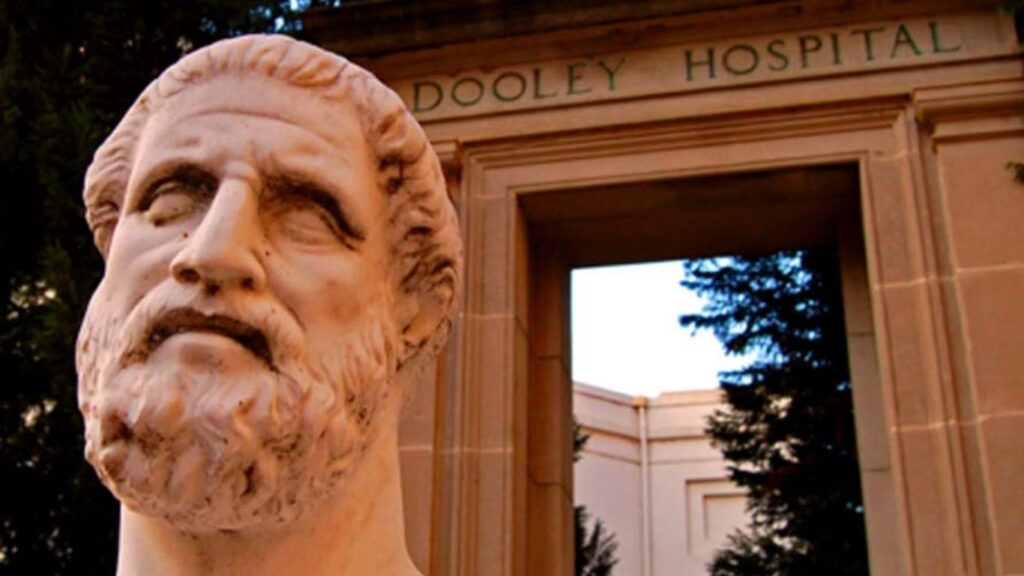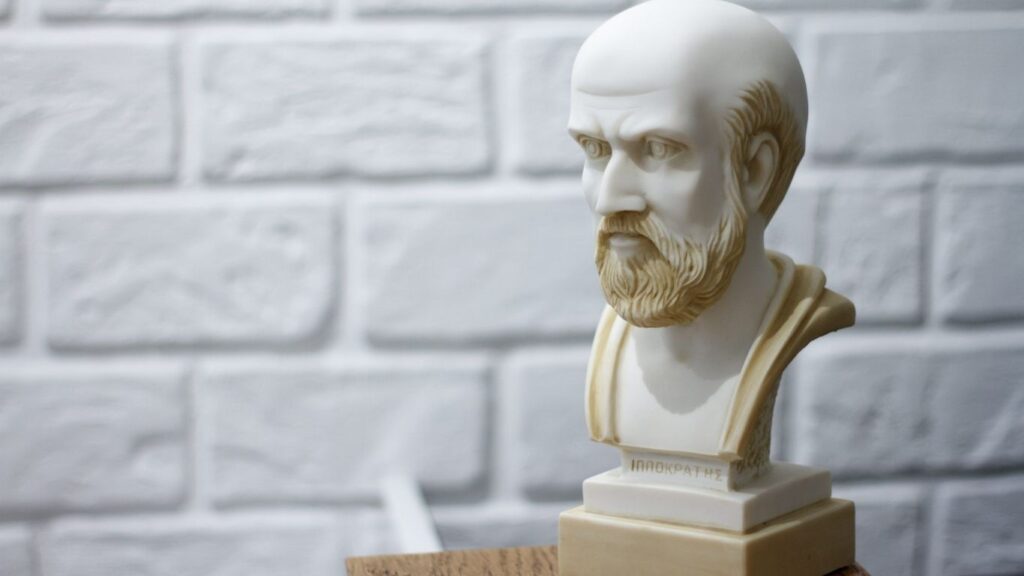In the grand tapestry of medical history, few figures loom as large as Hippocrates of Kos. Born around 460 BCE, this ancient Greek physician’s influence pervades even in the age of artificial intelligence and gene therapy. Often heralded as the “Father of Medicine,” Hippocrates fundamentally revolutionized the field, not through groundbreaking surgical techniques or powerful medications, but through the simple, yet profound act of observation. In doing so, he laid the cornerstone for what we now recognize as case-based learning in medical education.
Historical Context
Before Hippocrates, medicine was a realm dominated by superstition and the supernatural. Illness was often attributed to the whims of the gods or malignant spirits. It was Hippocrates who shepherded in a new era of rationality. He advocated that disease was not a punishment meted out by deities but rather a product of environmental factors, diet, and lifestyle.
Hippocrates’ Philosophy of Observation
At the heart of Hippocratic medicine was the steadfast belief in clinical observation. Hippocrates urged physicians to meticulously record the symptoms and progression of their patients’ illnesses. These observations were devoid of magical thinking; they were methodical, detailed, and grounded in reality. It was a manifesto for evidence-based practice centuries before the term would be coined.
The Emergence of Case-Based Learning

Case-based learning, where students learn about a subject through exposure to real-world cases, owes much to Hippocrates. His approach—careful observation, followed by reasoning about a patient’s condition—mirrors the process through which medical students and professionals diagnose and treat patients today. This educational strategy encourages the learner to engage in critical thinking and apply theoretical knowledge to practical problems.
The Hippocratic Corpus and Clinical Narratives
The Hippocratic Corpus, a collection of texts thought to be written by Hippocrates and his followers, remains a monumental achievement in medical literature. These texts do more than just relay medical theory; they share vivid patient cases, documenting symptoms, the course of the disease, and the effectiveness of treatments. It’s these narratives that showcased the power of clinical knowledge gained through observation and formed a blueprint for medical case studies.
Innovations in Clinical Methods
Hippocrates is often credited with introducing various clinical methods that form the basis of modern practice. He systematically examined his patients, which included inspection and palpation, and importantly, he inquired about their symptoms. He also stressed the significance of prognosis, allowing physicians to anticipate the course of a disease—a concept that is crucial for patient management.
Hippocrates’ Ethical Contributions
His contributions weren’t just scientific; they were ethical as well. The Hippocratic Oath, an ethical code attributed to him, is still recited in modified form by newly minted physicians around the world. It encompasses principles of confidentiality, non-maleficence, and beneficence, pillars that continue to underpin the sacred trust between doctor and patient.

Clinical Observation in Modern Medicine
Today’s medical practices still reflect Hippocratic principles. The patient history and physical examination remain foundational elements of clinical practice, despite the technological leaps in diagnostic tools. Medical students learn the art of diagnosis at the bedside, echoing the hands-on approach of Hippocrates.
Case-Based Learning Today
Case-based learning has evolved but retains its core premise. In contemporary medical education, it prepares students for the complexities of real-world medical decision-making. Through simulations and patient interactions, medical students and professionals learn to navigate the intricacies of various medical conditions, honing their analytical and diagnostic skills.
Challenges and Critiques
However, the reliance on observation isn’t without its challenges. Rare diseases or atypical presentations can evade even the most astute observer, highlighting the limits of observation without the support of modern diagnostic tools. Furthermore, there is the risk of cognitive biases in case-based learning, where past experiences unduly influence clinical judgment.
Hippocrates’ Legacy in Patient Care
Despite these challenges, Hippocrates’ legacy endures in patient care. His holistic approach to health—taking into account a patient’s environment and lifestyle—is mirrored in the biopsychosocial model of healthcare practiced today. His ethos of patient care, based on compassion, respect, and diligence, continues to inspire healthcare professionals across the globe.

Conclusion
Hippocrates’ shadow stretches long over the landscape of modern medicine. His dedication to clinical observation and case-based reasoning birthed a tradition of medical practice that is as relevant today as it was in ancient Greece. The white-coated figures that walk the hospital halls are the intellectual progeny of a man who, millennia ago, chose to see disease not as a curse from the heavens but as a puzzle to be understood through the careful study of the human condition. His legacy is not merely in the pages of history but in the very fabric of medical philosophy and practice.
Also read: Historical Overview of Ayurvedic Medicinehttps://fitgurulife.com/2023/10/07/historical-overview-of-ayurvedic-medicine/
